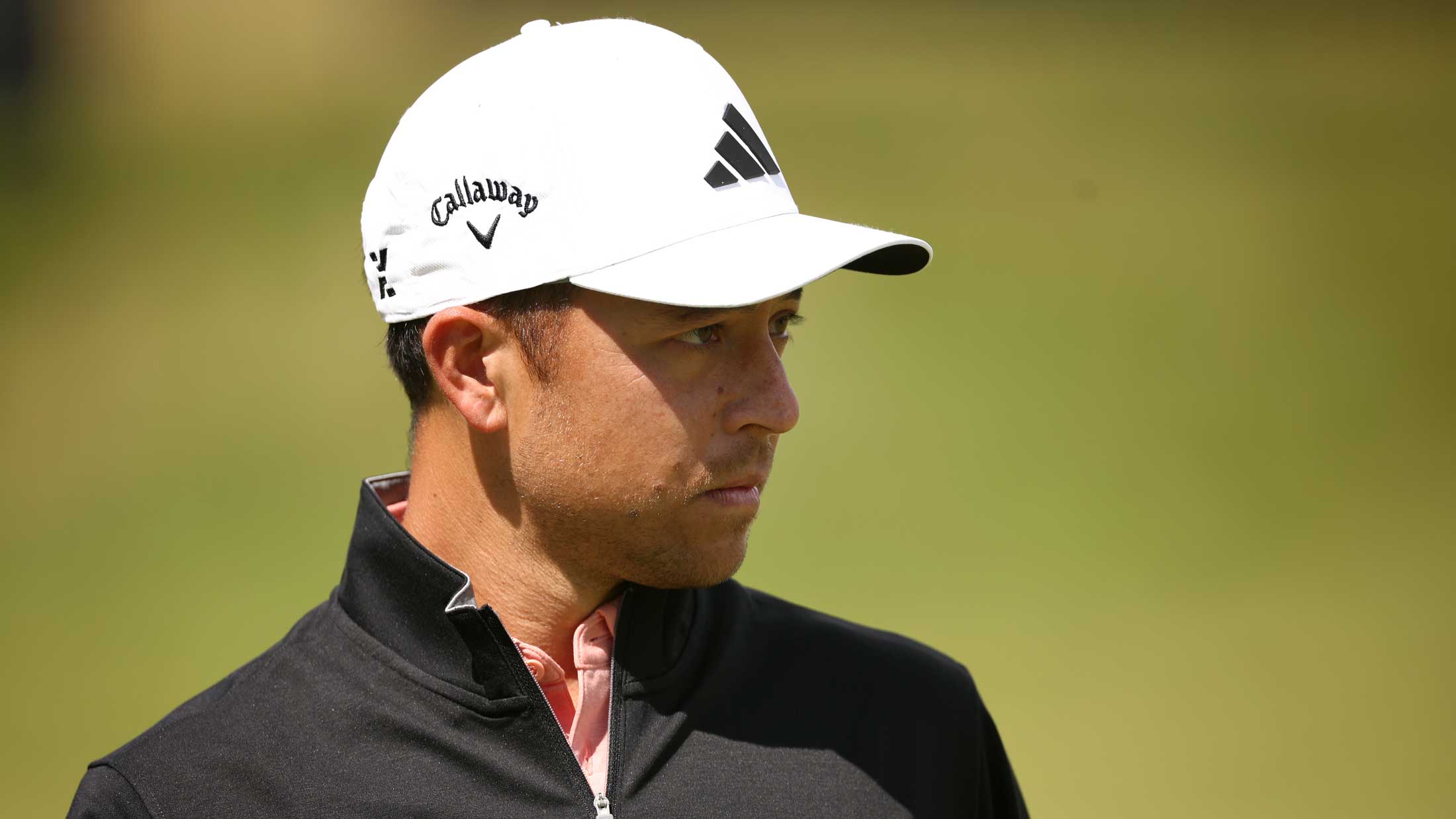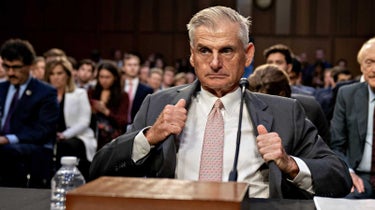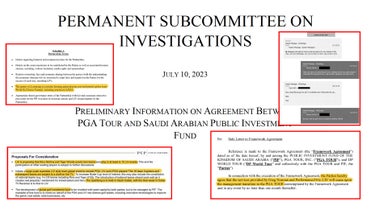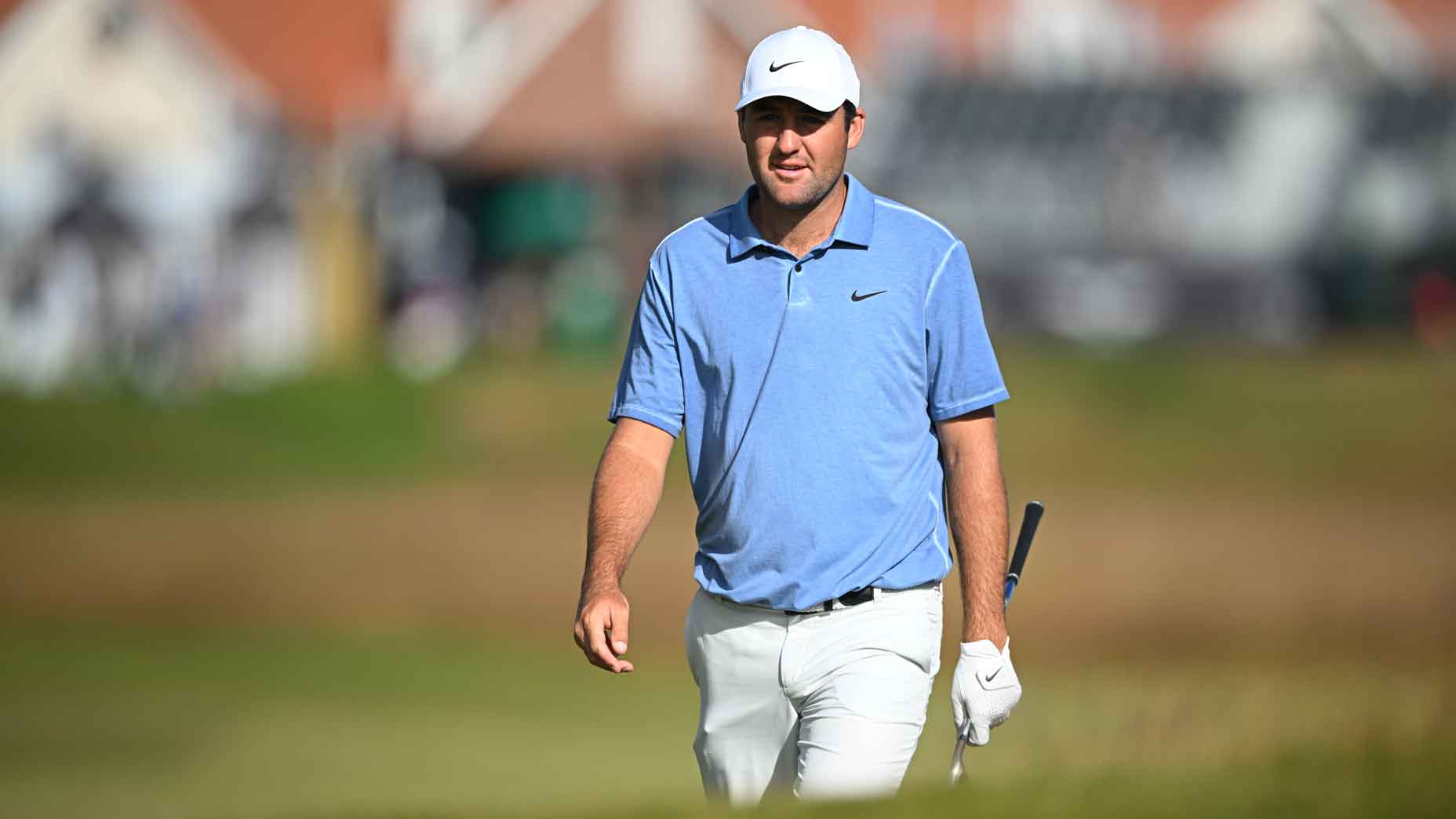
Xander Schauffele criticized PGA Tour commissioner Jay Monahan Wednesday, saying, “the guy was supposed to be there for us, wasn’t.”
Getty Images
About two-and-half-hours into a Senate subcommittee hearing Tuesday on the PGA Tour’s negotiations with Saudi Arabia’s Public Investment Fund, Sen. Richard Blumenthal (D-Conn.), who was leading the session, asked Ron Price, the Tour’s chief operating officer, how many players were notified of the potential Tour-PIF agreement before it was announced to the public on June 6.
“I don’t believe any players were notified,” Price said.
“None?” Blumenthal said in an incredulous tone.
“No, sir.”
“Not a single player was notified?” Blumenthal continued. “You’re a membership organization, your members are the players, you don’t exist without the players, but you didn’t tell a single one of them about the negotiations let alone what the result would be before you announced it publicly?”
“It was the settlement of litigation, which was binding,” Price said. “And then we told the players that we’d go through a process of making them fully involved with anything we do relative to the definitive agreement, which we’re in the process of doing.”
Court ordered or not, the Pentagon-grade secrecy of a deal that could shape the future of men’s professional golf has not sit well with some players. As Blumenthal pointed out, the Tour is allegedly a player-run organization with five active pros — Patrick Cantlay, Charley Hoffman, Peter Malnati, Rory McIlroy and Webb Simpson — sitting on the Tour’s policy board alongside four independent directors (that number was five before former AT&T chief Randall Stephenson resigned from his post last week). One of those directors — Jimmy Dunne — joined Price at the Senate hearing and told Blumenthal and the other senators in attendance that he could not envision a scenario in which he would support any policy-board matter that did not have a majority vote from the players.
Xander Schaufelle is not on the board, but as the sixth-ranked player in the world he still has a keen interest in what the future holds for the tour on which he makes a living. On that Tuesday morning when word of the Tour’s about-face began lighting up cable news and social media, Schaufelle was still in bed, cuddling with his French bulldog.
“My wife woke me up in a pitch-black room and informed me of the news,” Schauffele said Wednesday from the Scottish Open. “It was so early. I just remember laying there and I wanted to go back to bed, and then I was kind of like laying there, one eye, I was like — then my phone just started going off.”
Presumably some of those incoming messages were from Schaufelle’s fellow pros who felt as blindsided as Schaufelle.
“They keep saying it’s a player-run organization, and we don’t really have the information that we need,” world No. 1 Scottie Scheffler said Wednesday. “I watched part of [the hearing] yesterday and didn’t learn anything. So I really don’t know what to say.”
Should players, Scheffler was asked, have been involved in helping to shape the framework agreement?
“Should I have been?” Scheffler said. “Probably not. But I’m sure that a few of our players members should probably have been involved.”
One of the handful of Tour executives who was privy to the Tour’s conversations with Al-Rumayyan was Tour commissioner Jay Monahan, who Schauffele believes should have been more supportive of his membership in what have been unprecedented and unsettling times. Monahan took leave from his post in mid-June to treat an undisclosed illness, but in the weeks before Monahan’s leave, Schauffele said, the commissioner should have been more communicative.
“If you want to call it one of the rockier times on Tour, the guy was supposed to be there for us, wasn’t,” Schauffele said. “Obviously he had some health issues. I’m glad that he said he’s feeling much better. But yeah, I’d say he has a lot of tough questions to answer in his return, and yeah, I don’t trust people easily. He had my trust, and he has a lot less of it now. So I don’t stand alone when I say that. Yeah, he’ll just have to answer our questions when he comes back.”
Schaufelle is the first player to so harshly rebuke Monahan, but he’s on a long list of players who have carped about being left in the dark since the prospect of a PGA Tour-PIF deal first came to light.
At the U.S. Open in Los Angeles last month, Jon Rahm got to the core of many players’ consternation when he said: “I think it gets to a point where you want to have faith in management, and I want to have faith that this is the best thing for all of us, but it’s clear that that’s not the consensus. The general feeling is that a lot of people feel a bit of betrayal from management.”
At the Senate hearing on Tuesday, that last sentiment — I think the general feeling is that a lot of people feel a bit of betrayal from management — was plastered to a posterboard that Blumenthal used as a prop on the dais. With the quote looming behind his right shoulder, Blumenthal asked Price, “Have other players expressed these kinds of concerns to you?”
“Due to the confidential nature of settling the litigation and signing the framework agreement, we surprised a lot of people, including our players, so we’ve had a lot work to do to make sure that our players understand what we did and why we did it — they’re very interested in that,” Price began. “Our players are starting to understand why we did it, and they’re starting to see the significant benefits for them and the game of golf and all of our constituents, if we can move from the framework agreement to a definitive agreement. But they’re still very interested in the terms; they want to make sure we’re in control.”
“Have you received anything in writing from any of the players?” Blumnenthal said.
Here, Price’s eyes shifted from side to side, beginning a sequence between Blumnenthal and Price (Price’s responses below are in italics) that felt less conversational than confrontational.
“I have not personally received anything—”
“—well has the PGA Tour received anything in writing from any of the players?
“I don’t see everything that goes to our other executives so I can’t—”
“Are you aware of communications in writing from your players?”
[Price shook his head from left to right.]
“We understand there have been.”
“There certainly could have been because players were surprised.”
“Have you seen any?”
“I don’t recall seeing any.”
“Have you heard about any?”
“You know, I’ve heard about a lot discussions about players being surprised.”
“Could you make them available to this committee?”
“If they’re written communications, we will certainly make those available.”
You don’t need to read too deeply between the lines of that exchange to discern that the Tour is aware it has some bridge-mending to do. Regaining the trust and full confidence of its players will take time.
For their part, the players are also keenly aware that these are tenuous and complicated times. Even if few, if any, of them can see the end of the tunnel, they seem to believe that there might well be a light there.
“I think the Tour is working hard to try to get us more information,” Scheffler said. “But, like I said, it’s tough when you’re in negotiations to make everything public. It’s hard to negotiate the public side. I understand the privacy of it, but I just wish that our player reps need to be more involved in the process.”
Added Schauffele: “I think in any tough situation, something good will happen. It may not seem like it when you’re stuck in, knee-deep in some of that. But for the most part, I do expect some good things to come from everything that’s happened, and hopefully it’s some of our players getting more of that transparency that we have been asking for for quite some time.”










